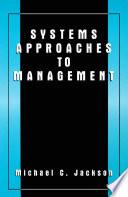The Art and Science of Effective Business Management
No business operates itself. No one person can manage every aspect either. Business and Management are the disciplines devoted to organizing, analyzing, and planning various types of business operations. And if that sounds really general, that’s just because these Book cover a lot of ground! These concepts given in this book teach the fundamental skills that are required to efficiently run or manage a business. So, whether you want to work for a large corporation, or in a mom-and-pop shop, you can be confident that a topic in this Business and Management book will teach you the skills and theory you need for a successful career. Being in the business field could mean anything from routing calls to making sales. Some work in public relations while others choose market research. Purchasing managers share the elevator with distribution managers, and a director of human resources chats with the benefits administrator. A manager keeps the day-to-day business operations running smoothly. They may write departmental procedures, conduct performance evaluations, and train new staff. Some make hiring—and firing—decisions. Managers set budgets, evaluate new technologies, and mentor their employees. Maybe you have the entrepreneurial spirit and want to try your hand at building the next Facebook. Experience goes a long way, but if you combine that with an entrepreneurship degree, you’ll be well equipped to set off on your own. However you choose to pursue either business or management, you want to make sure that you’re choosing a career that fits your unique skills. The possible job titles for Business and Management majors are practically unlimited. They range from financial managers, who use their mathematical skills to generate financial forecasts, to marketing managers, who draw upon their creativity to manage advertising and sales efforts. This Book Business and Management,splitted in to Five parts This is the Third part in the series each part covers 10 Subject Matters ,Subjects covered in this Third part are given below : WORKPLACE CIVILITY WORKFORCE DIVERSITY WORKPLACE POLITICS WORKPLACE STRESS WORK-LIFE BALANCE THE ART OF HAPPINESS TOURISM MANAGEMENT MANAGEMENT ART PUBLIC MANAGEMENT STRATEGIC MANAGEMENT One excels at sales while another pursues new product development. A genius negotiator may fail at public relations. Contracts can fall through in the hands of an otherwise gifted marketing manager. In a successful business venture, the entrepreneur finds experts to cover his or her weaker skills. There is a business career for everyone from high school graduates to a PhD. Of course, the most popular graduate-level degree is the MBA. For that reason, we separated the MBA into its own page. Within the business world, accounting is also a broad field with incredible demand, so we have a separate hub all about accounting. Benefits of This Business Management Book This Business and Management Book will prepare you for a variety of different possible career paths – and with a degree in this field, you’ll always be in demand. That’s because the skills you’ll gain in this Business and Management Book are extremely transferrable, which means that they will be useful in many different industries. That gives you an amazing amount of flexibility if you decide that you want to shift to a different industry or role. You’ll also have great earning potential with the knowledge gained through this book, especially if you complete a graduate program at a top school. Working in finance or as a chief executive, you could even end up taking home a six-figure salary with potential knowledge of Business and Management!
System Approach and Contingency Approach are the two approaches by this school of thought. Chester Barnard and Social Systems Theory One of the most important contributions to this school has been made by Chester I. Barnard.









